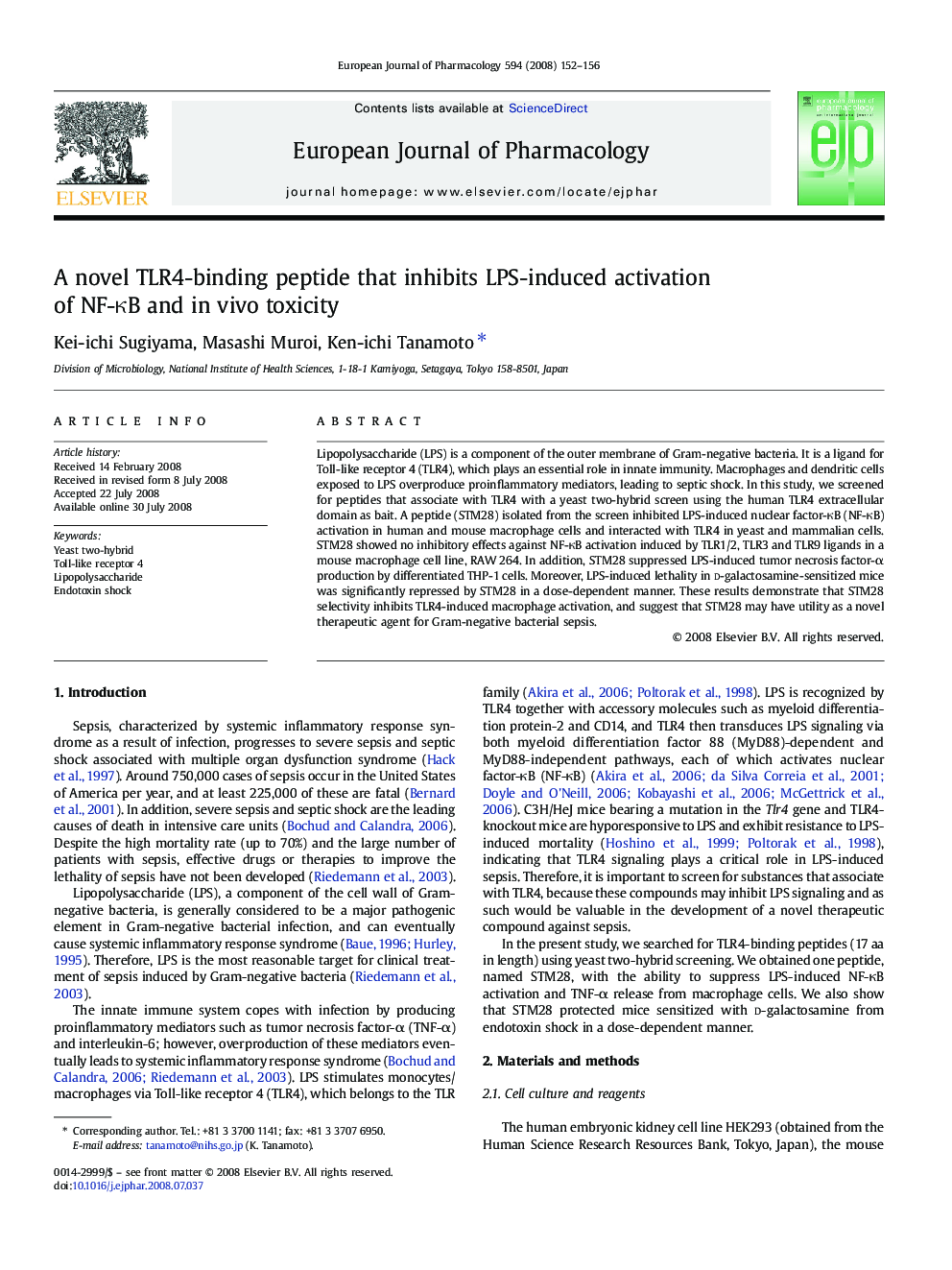| Article ID | Journal | Published Year | Pages | File Type |
|---|---|---|---|---|
| 2534911 | European Journal of Pharmacology | 2008 | 5 Pages |
Lipopolysaccharide (LPS) is a component of the outer membrane of Gram-negative bacteria. It is a ligand for Toll-like receptor 4 (TLR4), which plays an essential role in innate immunity. Macrophages and dendritic cells exposed to LPS overproduce proinflammatory mediators, leading to septic shock. In this study, we screened for peptides that associate with TLR4 with a yeast two-hybrid screen using the human TLR4 extracellular domain as bait. A peptide (STM28) isolated from the screen inhibited LPS-induced nuclear factor-κB (NF-κB) activation in human and mouse macrophage cells and interacted with TLR4 in yeast and mammalian cells. STM28 showed no inhibitory effects against NF-κB activation induced by TLR1/2, TLR3 and TLR9 ligands in a mouse macrophage cell line, RAW 264. In addition, STM28 suppressed LPS-induced tumor necrosis factor-α production by differentiated THP-1 cells. Moreover, LPS-induced lethality in d-galactosamine-sensitized mice was significantly repressed by STM28 in a dose-dependent manner. These results demonstrate that STM28 selectivity inhibits TLR4-induced macrophage activation, and suggest that STM28 may have utility as a novel therapeutic agent for Gram-negative bacterial sepsis.
